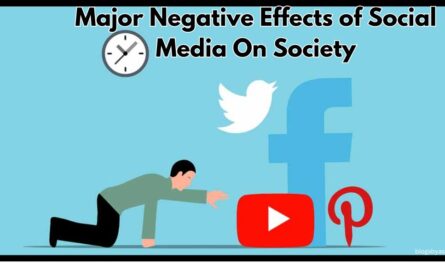Why Screen Time May Harm Development In Babies; The medical world is debating the effects of screens on human health and psychology as they grow more and more integrated into our daily lives. The harmful effects of readily accessible technologies. Such as phones and tablets, have been the subject of numerous research studies in recent years. With a particular focus on the physical and mental health of children. A recent study that included one-year-old children discovered a connection. Between excessive screen usage and delayed development of critical skills including problem-solving, motor skills, and communication.
According to the research, “greater time spent on screens for children aged 1 year has been linked with developmental delays in interpersonal and problem-solving skills at ages 2 and 4 years.” To be clear, the test findings revealed a pattern indicating that screen time may be at least one contributing factor. But the study was unable to prove a direct causal relationship between exposure to screens and developmental delays.
The study, which was published in The Journal of the American Medical Association Paediatrics. Looked at how exposure to screens impacts the five major domains of cognitive development in infants as young as one year old. Following an examination that focused on communication, fine motor, gross motor, problem solving, and social-personal abilities. The researchers employed the Ages & Stages Questionnaires to evaluate the presence of developmental delays in 7,097 of the study’s participant children.
The extent of immediate dangers

The researchers discovered that children who spent four hours or more in front of a screen had delayed development. Which had an impact on their ability to communicate and solve problems when they were two and four years old. The researchers concluded that delays had an overall negative impact on communication (5.1%), fine motor abilities (5.6%). Gross motor skills (5.6%), problem solving (4.2%), and social and personal skills (5.5%) at the age of 2 years. At four years old, comparable impacts were noted, but to a lesser extent.
Furthermore, with time, the impacts appear to diminish in some places. “Screen time for children aged 1 year was associated with the fine motor and social and personal abilities domains at age 2 years. However, this association was not confirmed at age 4 years,” the publication states. Nonetheless, the study was able to validate a dose-response relationship between screen time. Exposure at one year of age and developmental deficits at two and four years of age.
A child’s development is hampered by excessive screen time, according to research published in the Cognitive Development journal. It also states that “programmes aimed at young children should be adapted to the child’s cognitive abilities and encourage parent child-child co-use. “Researchers at the University of Calgary in Canada also hypothesised that children who were exposed to screens throughout their first two years of life would do worse on developmental assessments by the time they were three years old.
What are the findings of other studies?

According to a research in the Journal of National Medical College. Learning skills that can be taught by human guardians cannot be replicated by even the most personalised educational games and applications. Additionally, it is said that screens fall short in developing logical reasoning abilities to improve language proficiency, object labelling, and memory issues.
Despite the lack of evidence linking screen time to eye-related problems. There has been a rise in myopia in recent years as more children choose to stay home and use screens rather than go outside. “After studying more than 4,000 children at Sydney primary and secondary schools for three years, they found that children who spent less time outside were at greater risk of developing myopia,” according to a study published in Nature.
The behavioural aspect of screen time hazards comes next. The use of phones and tablets by parents to soothe their children (ages 3 to 5) can impede the development of their emotion-regulation skills, according to research published in The Journal of the American Medical Association Paediatrics. This can result in “more intense emotional reactions, more impulsivity, and less organised behaviour, making them more challenging to parent without social media.”
What do experts say?

Screen time is a divisive subject. While they have become a standard means of instruction, opinions among specialists regarding the appropriate age for children to start interacting with screens vary. According to the World Health Organisation. Children under the age of two should not be exposed to screens in any way on a daily basis, and children four years old and older should only spend an hour or less on screens at a time, especially if it isn’t connected to physical exercise.
However, human interaction still matters more in the teaching and learning of new abilities than relying solely on screens. Prominent brain scientist Patricia Kuhn told UNICEF. “You get genius learning from a live human being, and you get zero learning from a machine.” The director of Brain Matter, Carlotta Nelson, writes on the agency’s blog on how screen time generally impedes the development of focus and attention span.
It is also said that when vital human intervention is lacking. Children’s impulse control and comprehension of and capacity to communicate human emotions deteriorate. This is due to the fact that babies communicate by reading and interpreting human faces until they are able to speak. In addition to being essential for facilitating emotional and communication interchange, this human-driven two-way interaction channel influences brain development.
Parental tips for controlling screen time
Two essential areas that parents of young children must focus on are intervention and vigilance. According to the Australian government-backed book Raising Children. Video calls should be the only way that young children under the age of two are exposed to screens. When interacting with children, parents are advised to put their phones and laptops away and make sure the children are engaged in real-world activities, preferably outside.

According to the American Academy of Paediatrics. Parents should ensure that their children are not alone when using screens for screen time if they are younger than two years old. Additionally, screen time must to be restricted to the watching of beneficial or carefully selected healthy content. According to the non-profit National Childbirth Trust (NCT) in the United Kingdom. Screen time exposure in children under three years old has been shown to adversely affect sleep patterns and exacerbate anxiety. It strongly advises against allowing children under the age of two to use screens.
From a technical standpoint, parents can use an Android or Apple smartphone to regulate their children’s screen usage. It is referred to as Screen Time on iPhones and iPads and is accessible through the Settings app. Another application that allows parents to set screen time guidelines for their kids is Family Sharing. The Mayo Clinic advises parents to focus on interactive interactions and establish tech-free zones for their kids instead of allowing them to watch screen media.
Thanks for Reading this article for more information please visit. www.blogsbyash.com
Q&A
Q: So, what’s the deal with screen time and babies?
A: Ah, great question! Screen time, like too much TV or smartphone action, might not be the best for those little ones. if you want to know more about Why Screen Time May Harm Development In Babies kindly read the article.
Q: Oh really? Why’s that?
A: Well, it could mess with their development, you know? Babies need real-world interactions to learn and grow, and screens can’t quite match up to that.
Q: I see. What kind of problems could it cause?
A: Things like delayed language skills, attention issues, and even trouble with sleep. Plus, too much screen time early on might set them up for more screen addiction later in life.
Q: Yikes, that doesn’t sound good. What should parents do then?
A: It’s all about balance, you know? Limiting screen time, especially before they hit the age of two. Making sure they get plenty of face-to-face time with their caregivers.
Q: Got it. Anything else parents should keep in mind?
A: Yeah, it’s not just about cutting screen time. It’s also about what they’re watching. Educational stuff is great, but too much flashy, fast-paced content can overstimulate those little brains.
Q: Thanks for the heads-up! Anything else we should know?
A: Just remember, babies learn best from real-life experiences. So put down the screens and get ready for some quality playtime!




